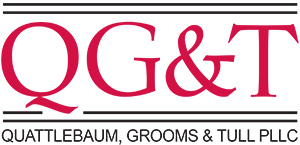NLRB’s New Joint-Employer Standard and the Practical Effect for Arkansas Employers
October 2015
by Madeline K. Moore |
In what is being hailed by many as a monumental decision, the National Labor Relations Board (“NLRB”) recently reversed its decades-old “direct control” standard for determining joint- employer status. In the 3-2 Browning-Ferris Industries of California decision released August 27, 2015, the majority cited concerns that the “Board’s joint-employment jurisprudence [had become] increasingly out of step with changing economic circumstances.” The Board went on to embrace a new standard that looks to whether two or more employers possess the authority to “share or codetermine th[e] matters governing the [workers’] essential terms and conditions of employment,” going a step further to clarify that a joint employer need only “possess,” not actually “exercise” such authority. The direct-control standard required that an employer actually exercise the authority over the workers before being determined a joint employer.
Browning-Ferris Industries of California (“BFI”) used a staffing firm to provide workers outside of a recycling plant under an Agreement that stated that the firm was their sole employer. The staffing firm recruited and hired the workers, staffed them to cover each of BFI’s three shifts, and employed separate supervisors to oversee them. Even so, the Board found that BFI still acted as a joint employer due to its ability to determine the terms and conditions of employment. The practical effect of the decision is that companies employing individuals through staffing agencies are more likely to be held liable for labor violations committed by employees of subcontractors or franchisees and incur an obligation to bargain with unions representing those outsourced employees.
The Browning-Ferris decision, though it will likely be appealed, also foreshadows the outcome of the still-pending McDonald’s case. In that case, the NLRB’s General Counsel maintains that McDonald’s is a joint employer that cannot avoid liability for alleged unfair labor practices and illegal retaliation based on the argument that its individual restaurants are operated by franchisees.
Perhaps the bigger take-away for Arkansas employers is the general trend that employers may be less likely to avoid liability and obligations for workers that are labeled as independent contractors,
“1099”s, or employees of a separate subcontractor. As government and enforcement agencies such as the Department of Labor (“DOL”), IRS, and NLRB embrace broader tests for imposing employer liability, employers must face the “economic reality” that they may be required to provide benefits to additional workers, and be exposed to increasing financial liability for employment practices under myriad state and federal regulations. See Information Regarding DOL Initiative To Address Misclassification of Employees as Independent Contractors at http://www.dol.gov/whd/workers/misclassification/.
Employers, particularly those operating as franchisors or employing individuals through staffing agencies or as independent contractors, should look carefully at their practices.
Quattlebaum, Grooms & Tull PLLC regularly advises employers with respect to labor and employment compliance and represents employers in employment-related investigations and litigation.
